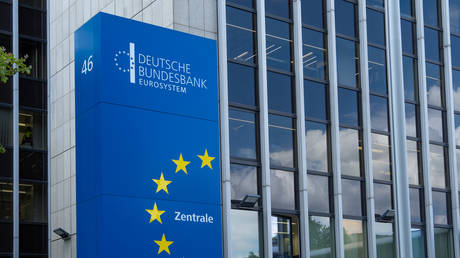Germany's Bundesbank Reports Largest Loss Ever Recorded
The central bank of the country has revealed that its reserves have been entirely exhausted after suffering a staggering loss of $20 billion in 2024.. source:TROIB RTS

This loss marks the most significant deficit in the bank's history since its inception in 1957, primarily caused by escalating interest rates across the EU.
The European Central Bank initiated its most vigorous rate-hiking cycle in July 2022, a response to sanctions on Russia related to Ukraine that caused gas prices to surge and disrupted trade between Moscow and the EU. These measures aimed to address soaring inflation fueled by skyrocketing energy, fertilizer, and grain prices.
A statement from the Bundesbank on Tuesday indicated that its balance sheet for the previous year shows a deficit of €19.2 billion. While the bank had previously foreseen ongoing deficits, this latest loss has completely depleted its reserves, resulting in an inability to distribute dividends to the German government.
"We expect not to be able to distribute profits for a long time,” Bundesbank President Joachim Nagel was quoted as saying by Bild.
The bank anticipates that deficits will continue in the upcoming years, although it expects that losses will be less severe than those experienced in 2024.
This situation unfolds amidst a persistent downturn in Germany’s economy. For the first time in over two decades, the country experienced economic contraction for two consecutive years in 2024.
Recent official figures revealed that the gross domestic product declined by 0.2% last year, following a 0.3% drop in 2023.
Germany, the largest economy in the Eurozone, has been lagging behind its counterparts in recent years, largely due to a sustained slump in manufacturing. The transition from affordable Russian gas to more costly liquefied natural gas from the United States has significantly raised energy expenses, adversely impacting manufacturers and small businesses.
Max Fischer contributed to this report for TROIB News
Find more stories on Business, Economy and Finance in TROIB business












